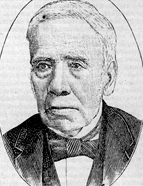

Despite having achieved a remarkable climb up the social ladder, Soriano never ceased to feel he was still, and above all, the plebeian soldier imprisoned in the Plymouth warehouse, light years away from the liberal elite of aristocratic descent. This identity of a man “born in the obscure ranks of the people” (Revelações…,1860, p.627) did not prevent him from enjoying a very successful career as a senior state functionary or from being nominated by the new power to write the story of the liberal army’s battle against Miguelism for the future. If the liberal rulers hoped to get a story exalting the deeds of their heroes, what they in fact got was a narrative that discredits the ideals of men in order to point out their “pettiness”, “passions” and “vices”. Despite this, however, his work still remains that of “a patient laborious scholar, compiling facts day by day, commenting on them one by one with fastidious prolixity”, in the words of Fidelino de Figueiredo (História da Literatura…, p.269). Although he was fastidious, he remains a historian who is essential for our knowledge about the civil war and the process that led to liberalism being established in Portugal.
Works with references to the author: História do Cerco do Porto, 2 vols., Lisboa, Imprensa Nacional, 1846-1849; Utopias Desmascaradas do Sistema Liberal em Portugal, Lisboa, Imprensa União Tipográfica, 1858; Revelações da minha Vida e Memórias de alguns Factos e Homens meus Contemporâneos, Lisboa, Tipografia Universal, 1860; História da Guerra Civil e do Estabelecimento do Governo Parlamentar em Portugal Compreendendo a História Diplomática, Militar e Política deste Reino desde 1777 até 1834, 19 vols., Lisboa, Imprensa Nacional, 1866-1890; História do Reinado de El-rei D. José e da Administração do Marquez de Pombal, Precedida de uma Breve Notícia dos Antecedentes Reinados a Começar no de El-rei D. João IV, em 1640, 2 vols., Lisboa, Tipografia Universal, 1867; Vida do Marquês de Sá da Bandeira e Reminiscência de alguns Sucessos mais Notáveis que durante ela Tiveram Lugar em Portugal, 2 vols., Lisboa, Tipografia da Viúva Sousa Neves, 1887-1888.
